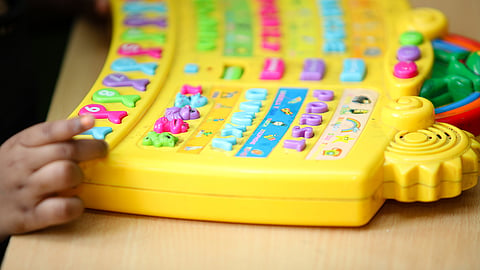
- Mental health mattersMental health matters
- Mental IllnessMental Illness
- Life stagesLife stages
- Caregiving
- Workplace Mental Health
- Legal Matters
- Subscribe

What is Auditory Processing Disorder?
Karthik’s parents were distressed about his schooling and education. He was a physically healthy 12-year-old, studying in class 5, two grades behind his age. No matter how hard he tried or how many home tuitions his parents arranged for him, he was not able to clear the 5th standard exams. His parents were extremely worried about him; Karthik's own self-esteem and self-confidence were decreasing by the day at not being on par with other children his own age. His parents took him to a child psychologist. The psychologist performed several assessments and found no intellectual, developmental or learning disability. Karthik had always complained of not being able to understand what was communicated to him, and would not obey instructions. At first, his parents and teachers thought this was his rebellious attitude, and he would be punished. It was only when he was in Class 5 that they understood that his inability to follow instructions could indicate something else. A teacher then suggested his parents to go to an audiologist who found that Karthik was suffering from Auditory Processing Disorder.
Does this sound familiar to you as a parent or a teacher?
Auditory Processing Disorder (APD), also known as Central Auditory Processing Disorder, affects how the sound that travels through the ear is processed and understood by the brain. It affects about five per cent of school going children. There is no abnormality whatsoever in the structure or the functioning of the ear.
Children with APD do not recognize subtle differences between sounds in words, even when the sounds are loud and clear enough to be heard. They cannot understand what is being spoken to them because of a lack of coordination between their ears and brain. Something interferes with the way the brain recognizes and interprets sound, especially speech. They can also find it difficult to tell where sounds are coming from, to make sense of the sequence of sounds, or to block out competing background noises.
What are the signs of Auditory Processing Disorder?
The following are some of the signs and symptoms to identify Auditory Processing Disorder (APD) in a child:
A difficulty in processing and remembering language related tasks
No difficulty in interpreting or recalling non-verbal sounds, music etc
Slow processing of thoughts and ideas, and difficulty in explaining them
Misspelling and mispronunciation of similar sounding words, omission of syllables, confusion between similar sounding words (three/free, jab/job, bash/batch etc.)
Confusion regarding figurative speech (similes and metaphors)
Interpretation of words too literally
Often distracted by background noises
Difficulty in focusing on or remembering a verbal lecture
Misinterpretation or difficulty in remembering oral directions
“Ignoring” people if engrossed
Often asking "What?" even if they have heard what's being said
What causes Auditory Processing Disorder?
The causes of Auditory Processing Disorder (APD) include:
Acquired APD: It can be caused by any damage to, or dysfunction of the central auditory nervous system.
Heredity and genetics: It can be transmitted through generations or can result from a difficult birth.
Developmental APD: The exact cause of developmental APD is unknown and research is going on in the field. Although the development of hearing begins in utero, it continues to develop through the first decade of life. Developmental delays or seizures might lead to APD.
Glue ears/ Otitis media: If a child develops glue ears during infancy or early childhood, he may be at a risk of developing AOPD. ‘Glue ears’ is when the middle ear gets filled with glue like substance. The fluid dampens the vibrations made by the sound.
How do you identify auditory processing disorder?
Auditory Processing Disorder (APD) is a difficult disorder to detect and diagnose. However, you as a parent, a caregiver or a teacher might look at the signs and symptoms and take the child to an audiologist, who with the help of special tests and instruments, can diagnose a child with APD. Many students with APD will face academic challenges due to lack of management of auditory deficits. This is why it is crucial that APD is identified as early as possible.
What is the treatment for auditory processing disorder (APD)?
If you are a teacher, you can use a number of small techniques or strategies can aid a child with Auditory Processing Disorder (APD) learn better:
Showing rather than explaining (using other sensory modalities- handouts, presentations)
Reducing background noise, when possible
Having them sit in the front of the class or near you to hear better
Having them take tests or work on assignments in an area away from distractions
Vary pitch and tone of voice, alter pace, stress key words
Allow them 5-6 seconds to respond (“think time”)
Have the student constantly verbalize concepts, vocabulary words, rules, etc.
References:
Auditory Processing Disorder: What You Need to Know: https://www.understood.org/en/learning-attention-issues/child-learning-disabilities/auditory-processing-disorder/understanding-auditory-processing-disorder
Auditory Processing Disorder: http://kidshealth.org/en/parents/central-auditory.html
Learning Disabilities Association of America: https://ldaamerica.org
We are a not-for-profit organization that relies on donations to deliver knowledge solutions in mental health. We urge you to donate to White Swan Foundation. Your donation, however small, will enable us to further enhance the richness of our portal and serve many more people. Please click here to support us.
